
Student Publications
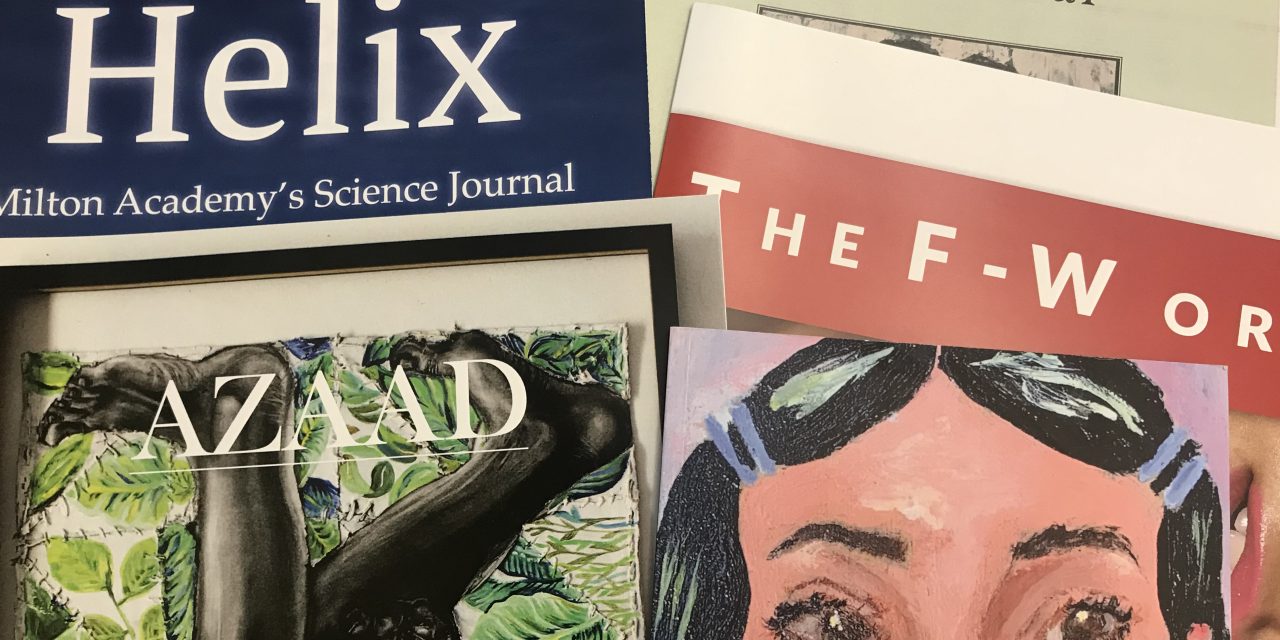
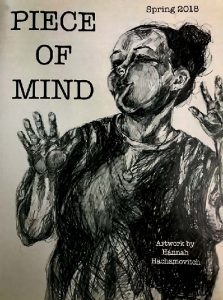 Piece of Mind
Piece of Mind
Editors: Jocelyn Sabin, Lauren Wei
Founded: Spring 2018
Provides a safe platform for students to share their experiences, anonymously or otherwise, regarding mental health.
From the editors: “We only launched last spring, so this year we are focused on establishing a presence. We built a website and collaborated with some other clubs. Our board has been amazing at coming up with interesting, creative ideas for the publication.”
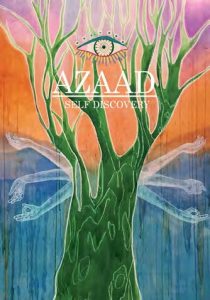 Azaad
Azaad
Editors: Akua Owusu, Natasha Roy, Adrian Hackney
Founded: 2016
Uses language to bridge cultural gaps and foster important conversations about culture and identity at Milton. Through creative writing, art and op-eds, helps students gain insight into somebody else’s world and also take a closer look into their own.
From the editors: “We focus on bringing new voices to the table and encouraging students who wouldn’t ordinarily share their perspectives. Our most recent issue centers on the theme of ‘Outsider.’ The submissions were surprising in many ways. It’s easy to forget how little we really know about each other’s stories and struggles. We were also pleasantly surprised to see how our peers have found strength and power in feeling like an outsider.”
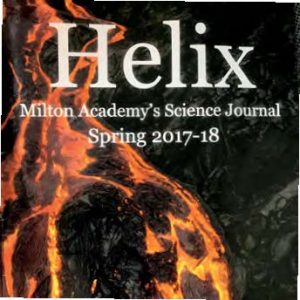 Helix
Helix
Editors: Kate Jones, Ryan Choi
Founded: 2006
Fosters an appreciation of science and educates Milton about current advances in STEM. Presents this information in a way that is attainable for everyone while still upholding high scientific writing standards.
From the editors: “We strive to present science in engaging and understandable ways. The first issue this year will contain five formal scientific articles about current events in STEM. The graduation issue contains interviews of seniors interested in STEM. Along the way, we learn about different people’s writing processes and how to respect those differences.”
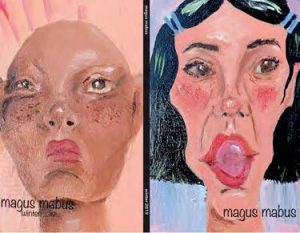 Magus Mabus
Magus Mabus
Editors: Serena Fernandopulle, Hana Widerman
Founded: 1966
Showcases student literary and artistic work. Hosts beatnik cafés (open-mic nights) throughout the school year to provide another place where students can explore their artistry.
From the editors: “The writers at Milton are diverse, lively and open, so it is great to facilitate a place for us to come together. A goal this year is to get submissions from students who aren’t in creative writing or visual arts classes. We want to expand subject matter and form, and to show creative work inspired outside of a school setting.”
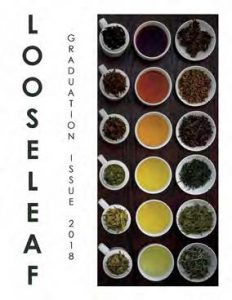 Loose Leaf (formerly known as the Asian)
Loose Leaf (formerly known as the Asian)
Editors: Jennifer Chen, Hana Widerman, Tara O’Malley
Founded: 2018
Focuses on the experiences of Asian students and faculty. Shares stories and art with the school to provide a platform for issues pertaining to the Asian community at Milton and beyond.
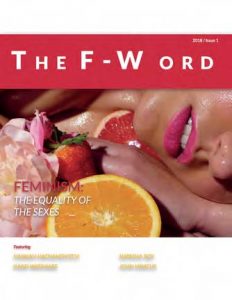 The F-Word
The F-Word
Editors: Amira Brown, Adrian Hackney
Founded: Winter 2015
Initiates dialogue about gender equality and feminism at Milton and the world beyond.
From the editors: “We aim to spark conversation about feminism and encourage students to become advocates for gender equality. We hope to highlight the experiences of marginalized gender groups who represent a variety of identities, including race, religion and sexual orientation. We enjoy hearing students’ stories from a variety of backgrounds. Each person holds unique experiences and a distinct relationship with feminism.”
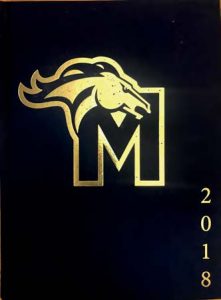 Yearbook
Yearbook
Editors: Jeanna Shaw, Jessica Blanksteen, Jack Panarese
Founded: A long, long time ago
Designed to document lasting memories for Milton Academy students, especially each year’s graduating class, and to be a venue for creativity and community.
From the editors: “This year we are streamlining the process and redesigning major parts of the yearbook to make it more representative of the student body and more fun. Our photographers are working hard to bring in a wider variety of photos and the layout team has more creative license to develop something original.”




